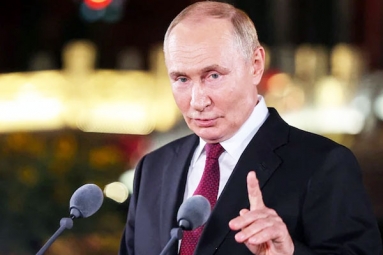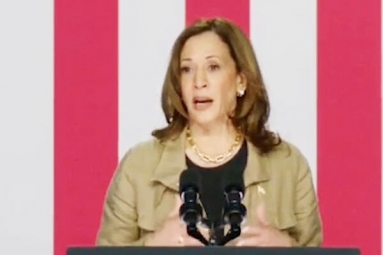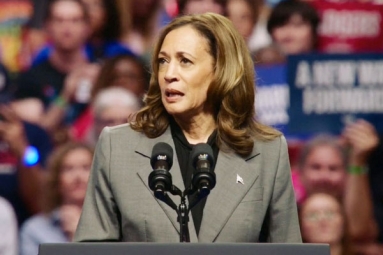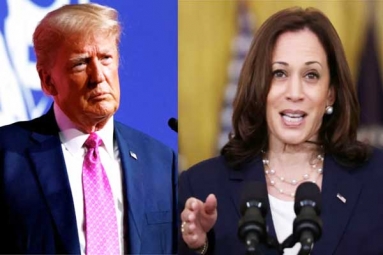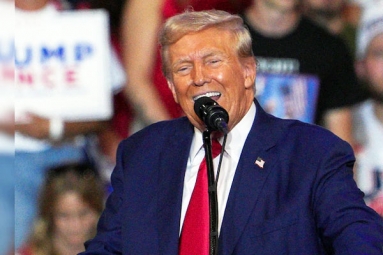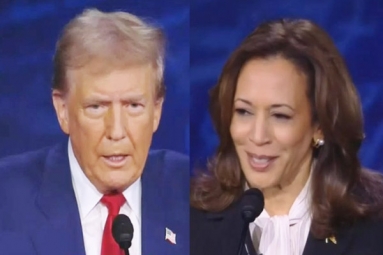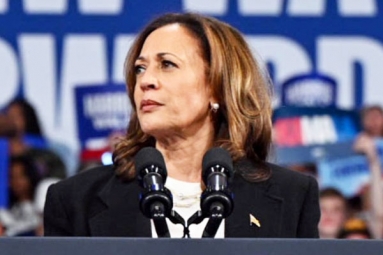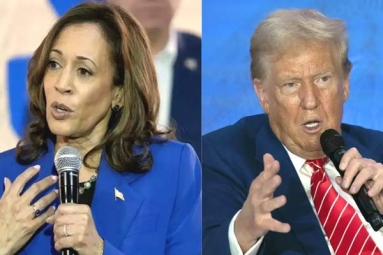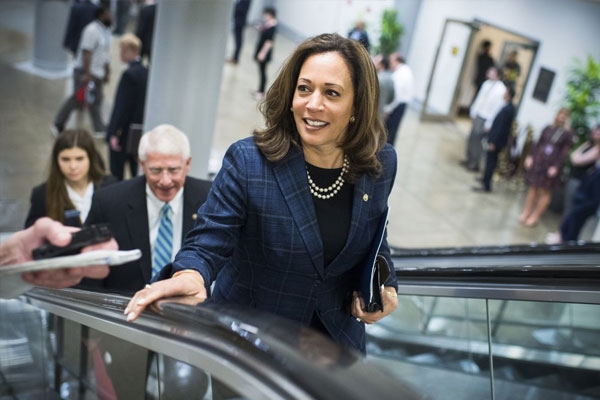
(Image source from: Vox)
Indian Americans are being taken seriously by Democratic presidential candidates as the community has increasing political clout. Almost 50 percent of voting-age Asian Americans cast a ballot in the 2016 elections and some 1.5 million were Indian, according to the United States Census Bureau.
Indian American California Senator Kamala Harris, 54, is one of the leading presidential contenders. Born to a Tamil Indian mother and Jamaican father, the family immigrated to the United States in 1960.
Indian Americans have donated $3 million to presidential campaigns so far this 2020 cycle, outshining highly sought-after Hollywood contributors. Two-thirds of that figure went toward Democratic hopefuls, their donations mostly funneled into Harris, Hawaii Rep. Tulsi Gabbard, who is not Indian American but is a Hindu, and Sen. Cory Booker of New Jersey, home to the highest percentage of Indian Americans of all U.S. states.
Harris raised more than $387,000 from Indian Americans through June.
Kumar Barve, who became the first Indian American elected to a state legislature told Washington Examiner: "It's definitely a generational shift."
"Indian Americans came here, they were professionals, they were upper-middle class, and a lot of them really didn't need government services in those days, and so they had less of an incentive. Their children began to be interested in politics because public service and what they learned in school," Barve said.
But he warned that Harris wasn't guaranteed the community's support, a sentiment reflected in the fundraising numbers: "It's a plus-point certainly, but I think that most Indian American voters are going to vote for whoever they think has the best chance of beating Donald Trump."
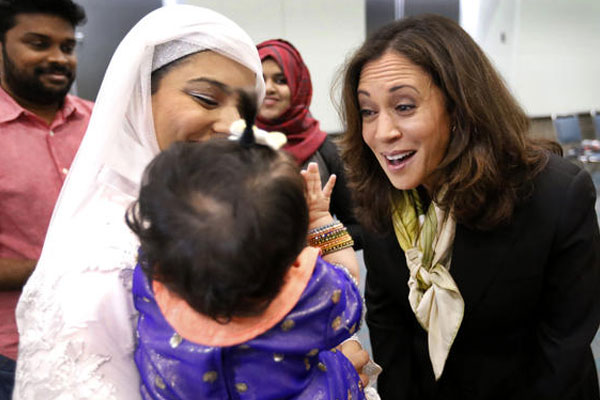 (Image source from: Chicago Tribune)
(Image source from: Chicago Tribune)
Harris hasn't made her Indian ancestry a central part of her campaign. Sumit Ganguly, a political science professor at Indiana University, Bloomington, called it a smart choice given the breakdown of African American and Indian American voters in the country, but said it was "a source of a little bit of unhappiness in the Indian American community."
"While she has not denied her Indian American heritage and has spoken quite warmly about her mother, she identifies on the campaign trail as African American because this is a matter of political savvy. She recognizes this is where she's going to pick up votes," Ganguly told the Washington Examiner.
Ganguly suspects the senator is "losing out on some of the funding from Indian Americans" but is optimistic she could make up ground by "being present."
"For example, in Silicon Valley for crying out loud," he said. "All she would have to do is show up at one of their gatherings and maybe make some nod toward her mother, and immediately she would win considerable support from significant segments of the community."
Harris routinely attributes her liberal political positions to her parents, civil rights activists who met in Berkeley, California, during the 1960s. She sometimes mentions her mother's parents.
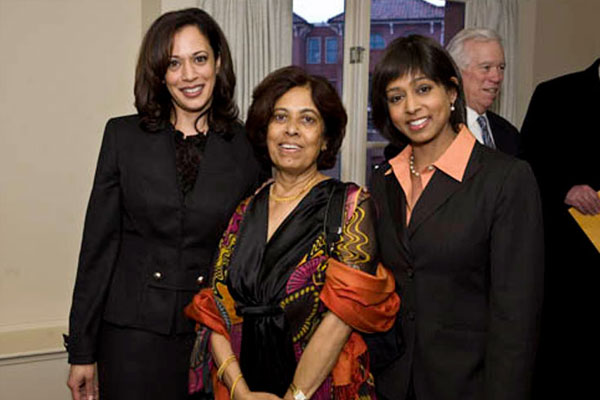 (Image source from: nrinewstoday.com)
(Image source from: nrinewstoday.com)
She says her grandfather, P.V.Gopalan inspired her to enter public life during childhood vacations every two or three years to the family's south India hometown of Chennai, then known as Madras.
P.V. Gopalan was a diplomat involved in India's independence movement before spending time in Zambia resettling refugees after Great Britain relinquished control of its colony.
In her 2019 memoir The Truths We Hold, Harris described her grandmother Rajam Gopalan as "a skilled community organizer." "She would take in the women who were being abused by their husbands, and then she’d call the husbands and tell them they’d better shape up or she would take care of them. She used to gather village women together, educating them about contraception,” she wrote.
In the book, Harris recalled how her mother raised she and her younger sister Maya to be "confident, proud black women" knowing her "adopted homeland" would view the pair as "black girls," regardless of their mixed background.
That primacy of her black identity was on display at the Washington fundraiser when the senator was urged to make her first overseas trip as commander in chief to India.
“When you become president, we want … your first foreign visit to go to India instead of Jamaica,” a man told her before she declined to commit, according to the Los Angeles Times.
By Sowmya Sangam






